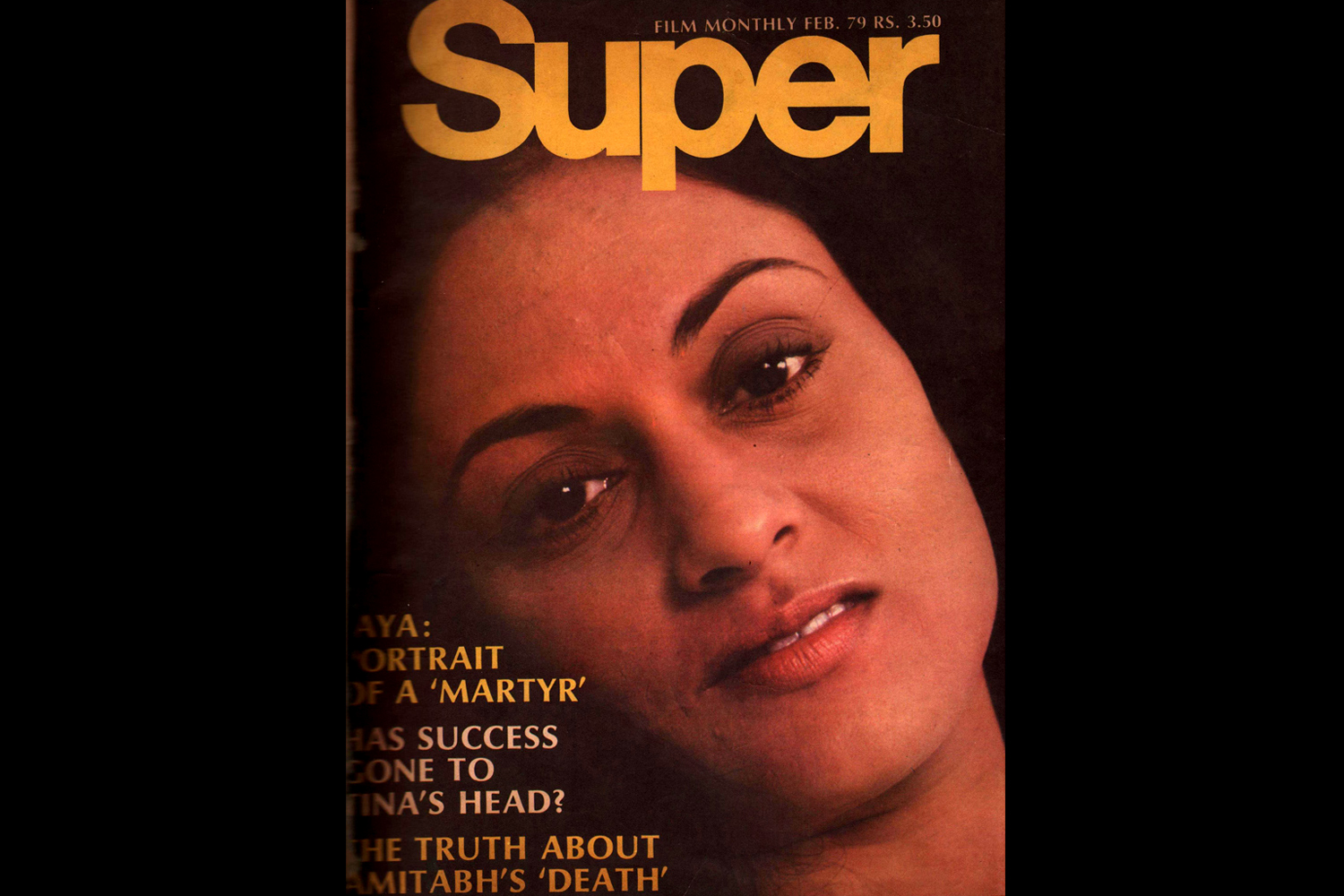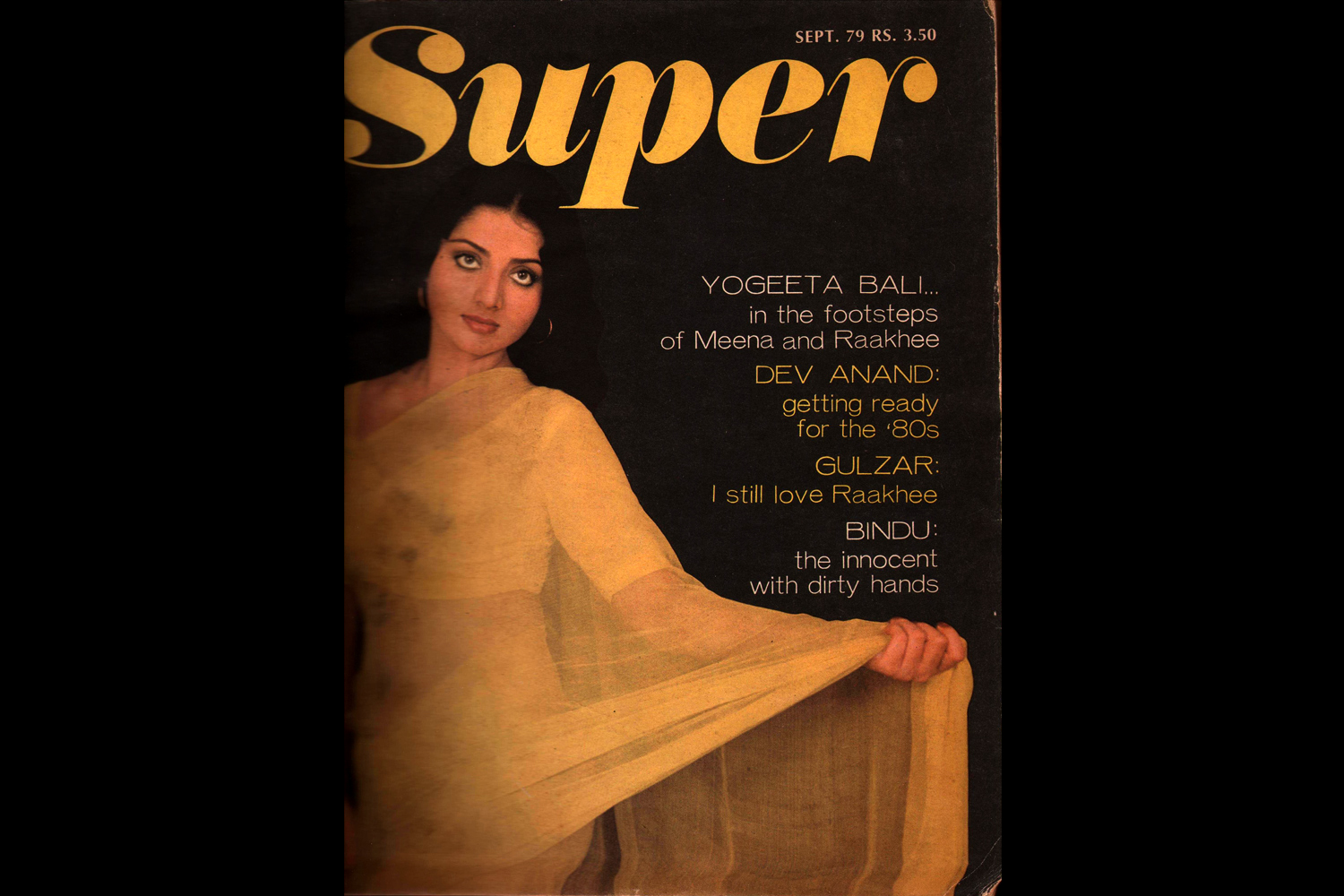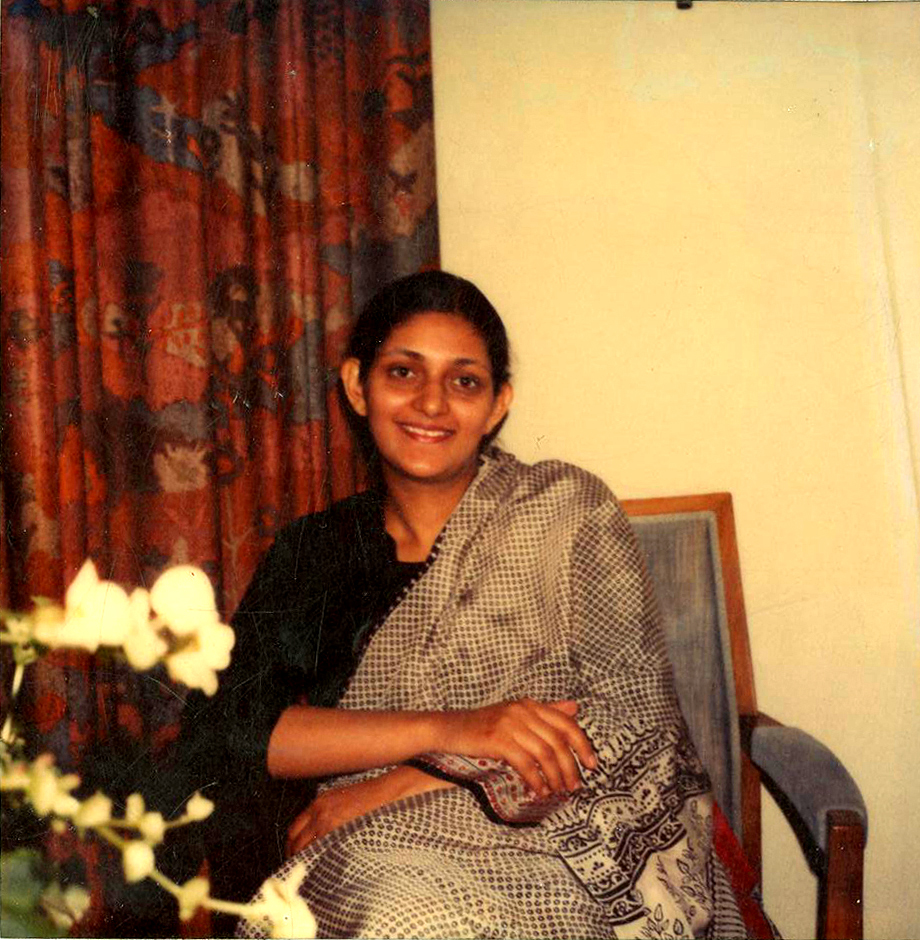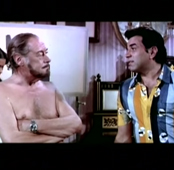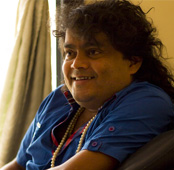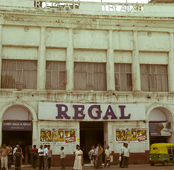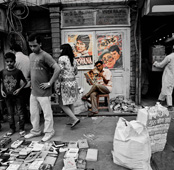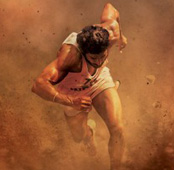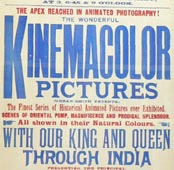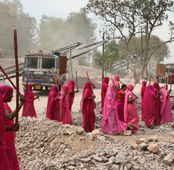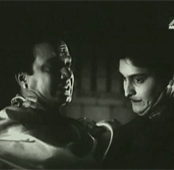-
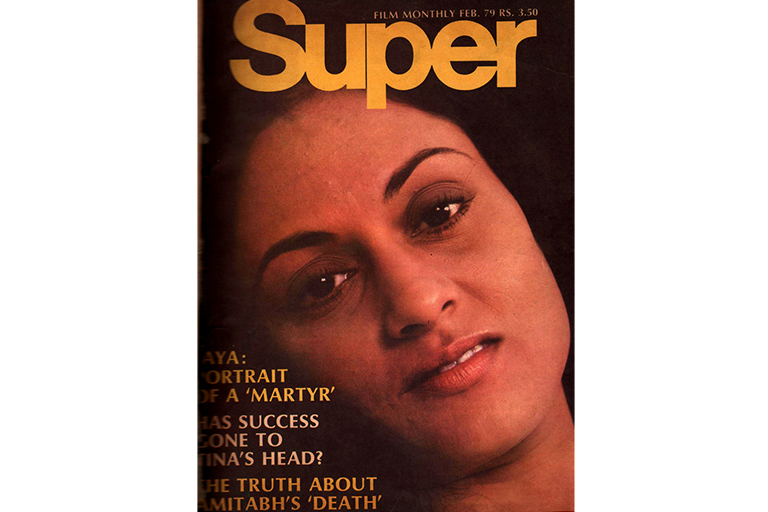 A cover of Super
A cover of Super -
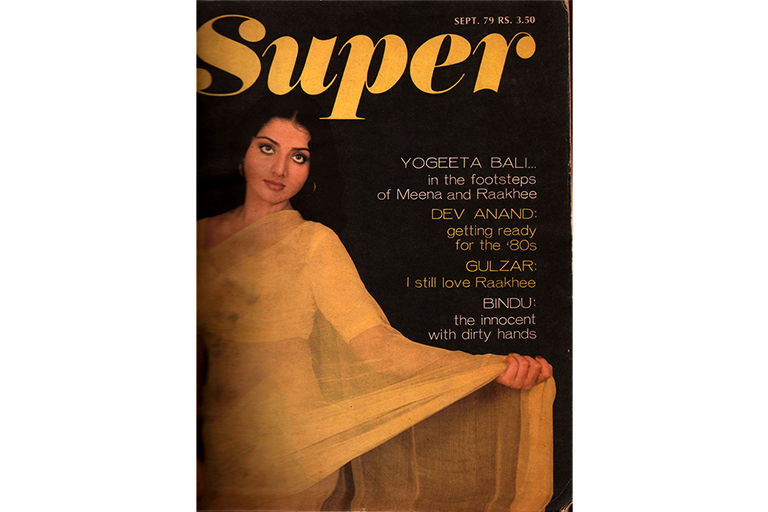 A cover of Super
A cover of Super -
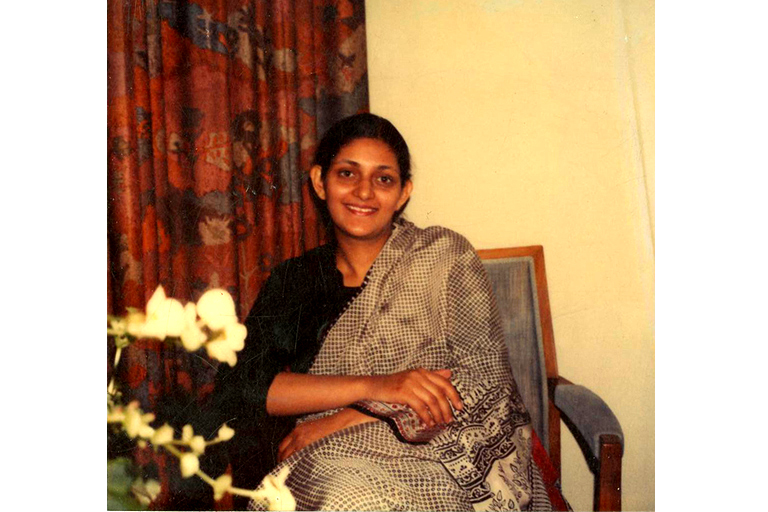 Namita Gokhale from her 'Super' days
Namita Gokhale from her 'Super' days
Namita Gokhale is one of India’s leading litterateurs. She has authored six novels, a collection of short stories, and several works of nonfiction, in English. Her debut novel, Paro: Dreams of Passion, a satire on the Mumbai and Delhi elite, caused an uproar due to its candid sexual humour upon its release in 1984. Gokhale went on to write Gods Graves and Grandmother, A Himalayan Love Story, Mountain Echoes – Reminiscenes of Kumaoni Women, The Book of Shadows, The Book of Shiva, Shakuntala: The Play of Memory, The Puffin Mahabharata and In Search of Sita. In 2011 she wrote Priya: In Incredible Indyaa in which she resurrected some characters from Paro. Her last book, a collection of short stories titled The Habit of Love, was released last year.
She is also a publisher who has introduced some notable titles and, as one of the founder directors of Yatra Books, has translated and showcased the best of Indian writing in Indian languages. And, along with the author William Dalrymple, she is the founder-director of the well known Jaipur Literature Festival.
But a lesser known fact about Gokhale is that, between 1976 and 1982 she published a film magazine called Super from Bombay. In this essay, written a few years ago, with characteristic wry wit, she revisits those days.
The year 1976. After being chucked out of college for not wanting to study Chaucer, I embarked on the contrarian option and set about publishing a popular film magazine. My dreams of becoming an academic, possibly a philologist, had been rudely interrupted by karma, kismet and the soon-to-be defrocked Sister Aquinas, principal of Jesus and Mary College, New Delhi.
I tried to kill myself, unsuccessfully. Then, having survived, I decided to revolt against academia and to publish Super. I was twenty, and the rest of the staff in Super were just a little younger or older. Rauf Ahmed, the slim, soft-spoken and elegant editor was all of twenty-eight, which made him seem very old. Rama (now Ramma) Luthra, who helped us get the ads, was rumoured to be touching thirty. Thirty was clearly the end of the world or life as we knew it. Bhawana Somaaya was eighteen and her folks were upset that she was working for a film magazine. Every time she was deputed to cover a filmi party, she would pretend she was staying over with friends to catch up on college work. Of course, it wasn’t Bollywood then. The B-word had not been coined (it first came into currency, I am told, in the early 1980s). Mollywood in Madras and Tollywood in Tollygunge were already there in filmi jargon, but Bollywood was still waiting to arrive and conquer the world.
The process of de-intellectualisation hit me like a disastrous crash landing. The word most in circulation was ‘maha’, and everything around us was ‘maha’ this or ‘maha’ that. Like Rajesh Khanna was ‘maha’ cool. It was Shobhaa Dé (then Shobha Kilachand), the gorgeous editor of Stardust, who had unleashed a whole new dhakar street vocabulary via ‘Neeta’s Natter’. G.V. Desani had done it before in All About H. Hatterr. Later, Salman Rushdie’s Midnight’s Children magically unshackled the English language from its colonial straitjacket. But it was Shobha Kilachand (nee Rajadhyaksha) who absolutely nanga karaoed things. The thwarted philologist in me approved.
Super folded up in 1982, and I began writing novels. I stopped watching films, and gradually the insider lexicon of the industry and the once-removed interface with what had now been dubbed Bollywood became a thing of the past. I no longer got a rush from reading film magazines. I began writing long sentences; usually with semi-colons in them. The exclamation marks and hyperbole of those early days had been determinedly abandoned. The years rolled by. The Bollygarchy grew and expanded and spawned new superstars. Amitabh and Jaya begat Abhishek, Babita (nee Shivdasani) begat Karisma and Kareena, Rakesh Roshan and Pinky begat Hrithik, while the badminton star Prakash Padukone begat Deepika Padukone. And so on.
And then there was a flashback moment. A crisp New Delhi winter mid-morning. The security lady at the Imperial hotel was fidgeting through my handbag, examining my ‘English Rose’ and ‘Venetian Venus’ lipsticks with inordinate suspicion, when I realised that Rishi Kapoor and Neetu Singh were standing there, beside me, on the cobbled driveway.
It was what academics would term a liminal encounter, a threshold between two worlds. Rishi Kapoor and Neetu Singh, Rishi Baba and his lady love. They looked like just any well-groomed couple, toned and gymmed and togged in designer clothes, diamond-crusted shades and expensive leatherwear. Of course, they couldn’t ever look like any-just-body, for their faces, self-consciously private, bore the stamp of constant public scrutiny, of celebrity, of Bollywood stardom, of surfaces that sense they are being examined.
I was sixteen when Bobby was released in 1973. I can remember it all, even today— the artless streak of flour in Dimple’s hair when Rishi visits her, Premnath’s open fly, unzipped for posterity, and Rishi Kapoor with side locks singing Main shayar toh nahin to Farida Jalal. That was the year Paul McCartney released ‘Band on the Run’. The year I first read The Female Eunuch by Germaine Greer and got confused about the ideology of lipstick.
It was the year of Bobby.
I may have betrayed and belied it, but I belong, in history and chronology, to the Bobby generation. I found myself staring star-struck at Mr. Plastic-Pink Duck Lips and Mrs. Rishi Kapoor, and it was like Proust and his madeleines from A Remembrance of Things Past, if I may be allowed a suitably highbrow allusion. I remembered the Neetu Singh of my Super days, her much-hyped vital statistics, her much-discussed cleavage, her much-feared mother, the late Mrs. Rajee Singh, who had dark circles around her eyes and was reputedly of a stern disposition. I even remembered some haiku poems that Neetu had once written, the articulate verses I had read in the course of an editorial meeting. I forgot my handbag and the security lady and rushed across and gushed all over the cool power couple, inarticulately expressing my delight and nostalgia at seeing them. I think they were startled by my enthusiasm, and before I could sink into deeper shame by asking for Neetu’s autograph, they had disappeared, sped away in a waiting car.
Coincidences mounted in Bollywood style, and I encountered Rishi and Neetu again, the very same day, at the delicatessen at the Oberoi, biting into macaroons and sipping hot chocolate. I had recovered my composure by then, but I think they perceived me as a Delhi stalker. Later, I connected with all that Proustian consciousness through YouTube, where I viewed the Shemaroo video of Main shayar toh nahin, and also Googled gyan on Ranbir, Neetu and Rishi’s star son.
There are two bound volumes of old copies of Super on my bookshelf. Here were ‘Super Scoops of Seventy Nine’— where Super Scooper Pammi Bakshi goes to interview Chintu Baba— Rishi Kapoor to you and me. Rishi, at twenty-six, ‘symbolises the acme of achievement that a person his age can reach’. The interviewer reaches his residence at the appointed time. ‘I saw him prancing around in a towel. “Why are you here so early in the morning?” he enquires cheekily, before getting to talk about The Woman in His Life. It’s his mother, Krishna Kapoor. He was practically in tears when he talked about her influence on him. Then the conversation turned to the other woman in his life, Neetu . . . “I am too irresponsible for marriage but I’ll marry. Maybe next year.”!!!!!’
Bollywood stars are not cardboard cut-outs, they are a chunk of collective consciousness. The custodians of Bharatiya youth, glamour, and celebrity, they are the emanations of our national dreams and desires, the essence of the projected other, the validation of all we would but could not be. In short, we live through them. I realised this afresh, in not so many long words when I met Dev Anand at the Jaipur Literature Festival some years ago. His autobiography Romancing with Life had just been released by the prime minister, Dr. Manmohan Singh.
Dev Sa’ab, with his uniquely jaunty style, was a staple of our Super days. We watched him mentoring Zeenat Aman, and introducing Tina Munim, while the sepia-tinted nostalgia sections would of course regularly resurrect the Suraiya love story— the engagement ring she had thrown away into the Arabian Sea and all that. Dev Anand’s first film Ziddi had him starring opposite Kamini Kaushal. This was followed by classics like Taxi Driver, CID, and Paying Guest. The evergreen hero wore a beret and dripped attitude. He delivered his lines in a rapid, breathless, each word-a-paper-plane style. He sang songs like Main zindagi ko dhuen mein udata chala gaya. He looked and acted like his contemporary, Gregory Peck.
January 2007, a restaurant at the Rambagh Palace, Jaipur. At our table, William Dalrymple before me, John Berendt to my right. I struggled to explain to them who the dapper, debonair man beside me was, what he represented to my world. Dev Anand’s face was creased into a classic Dev Anand smile. His perfectly folded silk cravat supported an impeccably youthful face, which remained tilted at a familiar forty-five-degree angle. All the waiters wanted his autograph, they had stopped serving us and were staring at the Living Legend in silent adoration. The lobby manager had arrived too, and the girls from the reception desk. ‘Dev Anand is one of the most popular film stars ever,’ I said. It sounded inadequate. Suddenly Dev Anand turned to me and enumerated, with perfect recall, the last time we had met. ‘It was in 1981, I think,’ he mused. ‘You were with your editor Rauf Ahmed—what was the magazine called . . . ?’
‘Super,’ I said humbly, remembering, once again, those days. Age cannot wither nor custom stale . . .
Rajesh Khanna and his wife Dimple Kapadia had dominated the gossip columns: ‘Neeta’s Natter’ in Stardust, and the ‘Deep Throat’ and ‘Grapevine’ segments in Super. We paid fifty rupees an ‘item’ to our informants, and the tiny office in Nariman Point would be abuzz with The Khanna’s latest antics as, over tea and bhelpuri, we dissected his mystique and his human failures.
Super, September 1979: ‘No one would believe that Rajesh Khanna bears any resemblance to a lottery ticket. But both go for one-rupee gambles. Both promise huge returns. There’s one difference though. Rajesh Khanna always wins. He says, “When I want something badly, I take a one-rupee bet with someone that I will get it. And I always win. Recently it happened with my film Amar Deep . . . ” Floundering as he was in a maelstrom of flops, Amar Deep seemed to be the only straw in sight. The film, which most distributors avoided after seeing the first trial, is a hit . . . Will the person who has taken that fatal one-rupee bet with Rajesh on who will become the next No. 1, please stand up?’
Rajesh Khanna hasn’t written his memoirs yet. Born Jatin Khanna in 1942, he changed the way a generation felt about romance and love. The Rajesh Khanna phenomenon was both everyman and anti-hero. He had peaked by the time we embarked on Super. An angry young man, Amitabh Bachchan, was on the rise even as Khanna’s star was waning.
I remember the first time I ‘met’ Rajesh Khanna. It was in my hometown, Nainital, where he was shooting with Asha Parekh, for Kati Patang. Everybody and everyone knew that Asha Parekh wore padded hips, and hordes of observant onlookers trained their eyes on her posterior as she executed faultless matkas and jhatkas around the Municipal Gardens by the lakeside with Rajesh Khanna. At least, that’s how I remember it. As we returned home, my mother bought a carton of eggs and asked me to carry them. We stopped at the Grand Hotel for a bit, where Kaka Luthra, the local hotelier who had once been with Prithvi Theatre, had promised to introduce us to The Superstar. We were waiting upstairs, and there was Rajesh Khanna climbing the wooden staircase, clutching the banister. He wore a brown corduroy jacket, and I realised, staring from above, that he was bald and there was boot polish on his head. Just then one of the eggs broke and everything was a mess— or a liminal moment, depending on how you looked at it.
Rajesh Khanna should have written his memoirs, and perhaps he will, one day. He has begat his own minor dynasty, with his son-in-law Akshay Kumar top-of-the pops in Bollygarchy ratings. His ex-wife Dimple still looks beautiful. I remember reading somewhere that her sister Simple had died. It gave me a shock, tugged at my heart as though she were family. At Super, so long ago, we had been current and informed about sister Simple, and their father Chunnibhai Kapadia, known to the film mags as CBI, or the Chunnibhai Bureau of Information. I didn’t have to Google any of this— I was steeped in a complex secular mythology, which mirrored, in intricate detail, the religious mythology of the great Indian epics. We are like that only, with over a billion gods and trillion minor deities, and a Film Lok in parallel to Indra Lok and Dev Lok.
Rajesh Khanna is clustered in memory with Devyani Chaubal. For those of you who don’t know, or don’t remember, DC was a gossip columnist with Star & Style. Devyani was a well-connected Maharashtrian with once-beautiful features. Like The Superstar, her hair was thinning under her back-combed bouffant. She was middle-aged, single, and desperately in love with Rajesh Khanna. Also, she was under the delusion that The Superstar reciprocated her love. Insiders hinted that he had once seduced her. How we mocked Devyani, how she fuelled our laughter! Every week, her column would revolve around The Khanna, what he said, what he did, and all of this would be flavoured with meaningful innuendoes about the ‘special’ relationship between The Superstar and her.
Devyani Chaubal had a sharp mind, and a pen dipped in vitriol. She wrote really well, except for her tragic vulnerability on this one obsessive subject. We laughed then, we bright young Super immortals, we sneered and hooted at her column. ‘I want to look like a million dollars,’ she told me when we had lunch together. That was the last time I met her. Devyani overdid her diet, as she overdid everything, and she fell ill from malnutrition. She deteriorated. Then she slipped into a diabetic coma, and her friends who loved her looked after her. I don’t know if Rajesh Khanna visited her in hospital, but looking back and remembering her after all these years, I recognise there was something heroic and magnificent about her one-sided love, and I feel a bit sad and stupid about the way we had all laughed at her.
Doomed love gets me thinking about Parveen Babi. She was lovely in an incandescent sort of way, with glowing skin and straight hair and a cloud of innocence floating around her. The gossip columns regularly reported on her sizzling love life. I think she had an affair with Danny Denzongpa and then she moved in with Kabir Bedi, after which she sought consolation with Mahesh Bhatt— and somewhere in this trajectory she fell in love with Amitabh Bachchan. Films like Amar Akbar Anthony record Babi in her glory days, before she reportedly became victim to acute and extended attacks of paranoia and schizophrenia.
It was perhaps the trio of Parveen Babi, Zeenat Aman and Shabana Azmi that radically altered the way young Indian women perceived themselves. The ghunghats and ghararas of family dramas and Muslim socials gave way to a casual, natural style in dressing and demeanour. Parveen Babi was possibly the most conventionally beautiful, but all of them shared a spontaneity and infectious spunk that communicated itself to their enormous fan following. Then Zeenie Baby too went into cinematic and media exile, and only Shabana remained to move from strength to strength.
Shabana Azmi is beautiful, intelligent and articulate, but I would hesitate to describe her as a Bollywood star, as there are many more dimensions and parameters to her public and private persona. But in my memory, from those Super days, there are three bindaas, bohemian girls in bell-bottoms. Carefree and contemporary, they liberated their audiences of a tyrannical set of tired clichés about femininity.
And then there was Mandakini, the Ram Teri Ganga Maili girl. I remember Mandakini with a sense of personal involvement because she looked exactly like my younger sister. Both had gorgeous smoky eyes and a sort of in-your-face glamour. My sister was often mistaken for Mandakini. When I was in Breach Candy Hospital in Mumbai, recovering from cancer, the security guards and lift men let my sister come and go as she pleased, bypassing the strict rules of the hospital. They had assumed she was Mandakini— who in those days was the best friend and constant companion of Dawood Ibrahim, the mafia don. My sister never corrected them; the mistaken identity amused her, and it was convenient too!
Mandakini disappeared. Nobody had any idea of what had happened to her. Just a single photograph some years ago, where she looked radiantly cheerful: Mandakini is married to a Tibetan, who used to be a monk, and treading the path of virtue and happiness. A Bollywood ending with a tangled twist, and what I am sure must be several intermediate untold stories.
Bollywood was and is not only about actors, but about stories and scripts and plots and sub-plots. Like Shakespeare and Kalidasa, Bollywood simultaneously sustains both high and low art. It is a repository of folk and classical traditions reinterpreted in context. And it is fun, a national stress-buster, a collective mood-enhancer. The unique spirit of Bollywood, of its manic megalomania, its plastic plagiarism, its transcendental understanding, was perhaps best represented in the immortal films of Manmohan Desai.
Manmohan Desai was the director who, with Amar Akbar Anthony, birthed the new genre of the Masala Hindi Movie. Films like Parvarish, Naseeb and Coolie brought together comedy, coincidence, synchronicity, miracles, and a determined secular respect for all religions. These vibrant entertainers did not insult the viewer’s intelligence— they simply ignored it.
The intellectual world despised Desai. Rosie Thomas came to India in 1980 to undertake an anthropological study of popular Indian films and was an observer on the sets of the Bachchan-starrer Naseeb (Naseeb is a story of fate and kismet: it begins with a lottery ticket being given away by a drunk to a waiter). K.K. Shukla, Manmohan Desai’s scriptwriter, told her, ‘I can’t believe you are getting money to do this!’ She recalls giving a talk on the subject to cinema scholars at an Italian film festival. ‘I suddenly realised I was being given a slow clap! They expected a lecture on someone like Satyajit Ray!’
Manmohan Desai died in 1994, just fifty-eight years old. A widower, he had only recently got engaged to the film actress Nanda. The obituaries called him the ‘Miracle Man of Bollywood’ and referred to the deliberate illogic of his incredible genius.
Super shut down in 1982, for reasons too complicated to explain here. I returned to the seductions of literature, and got down to writing my first novel, Paro: Dreams of Passion. There was a scene in it where I paid my dues to Bollywood.
‘Deus Ex Machina,’ Lenin announced sonorously, and extracted a bottle of champagne from under his shawl. We had a copy of Latin for Lawyers in Suresh’s library but so much erudition and class went right over my head.
‘Saved by the bell,’ he clarified.
‘He’s won a fucking lottery,’ Paro amplified. She was dressed in a long black kaftan, and her hair lay loose about her shoulders, the red highlights giving her an eerie flamboyance. I sensed that she was not being flippant, for there was a subtle change in her demeanour, and her arrogance, which had appeared a little threatened recently, seemed to have resurfaced without any major bruises. Her contempt for me was once again visible and tangible.
I never knew such things happened in real life. I thought they happened only in films. In fact it had all begun with a film. One drunken night Lenin and Paro decided to ‘go slumming’ and see a Bachchan starrer. One of Amitabh’s dialogues really appealed to Lenin.
‘Apna naseeb kabhi kisi ko mat becho,’ Amitabh Bachchan had said, and that was what Lenin was now repeating in excellent declamatory style, his eyebrows all askew. He told us the whole involuted story of the film, the upshot being that he (Lenin), went and bought himself a lottery ticket. He didn’t forget about it after that, but kept the ticket (for Lenin) very carefully, and assiduously checked all the results in the newspapers on the due date. He swore that he was not in the least surprised to find that he had won five lakhs of rupees.
I don’t watch many films any more. I should, but I don’t. But I remember every minute of those Super days, and Rishi Kapoor and Neetu Singh are still superstars for me.
Excerpted from The Popcorn Essayists – What Movies do to Writers, published by Tranquebar Press/Westland Ltd., 2011. You can buy the book here.
Super Days
ArticleAugust 2013



